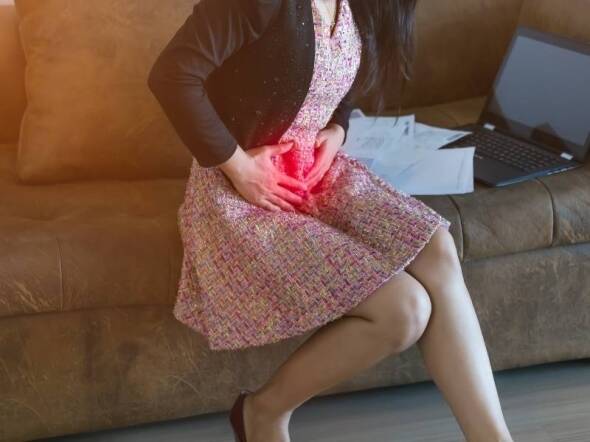Feeling stuffed and bloated during your in vitro fertilization (IVF) cycle? Ovarian hyperstimulation syndrome (OHSS) is an excessive response to taking the medicine used to make eggs grow during an IVF cycle.
What is Ovarian hyperstimulation syndrome (OHSS)?
Women with OHSS have a large number of growing follicles in their ovaries in conjunction with high estradiol levels. This leads to fluid leaking into the belly, which can cause bloating, nausea, and swelling of the abdomen.
One out of three women has symptoms of mild OHSS during controlled ovarian stimulation for IVF. OHSS can be classified as mild, moderate, or severe.
Ovarian Hyperstimulation Syndrome symptoms
Women with mild to moderate OHSS have symptoms of:
- Mild bloating
- Nausea
- Weight gain due to fluid
Women with severe OHSS usually have:
- Vomiting and cannot keep down liquids
- Significant discomfort from swelling of the abdomen
- Can develop shortness of breath
It is common to feel mild symptoms of OHSS during stimulation. However, moderate to severe symptoms usually peak six to eight days after treatment ends.
How long does Ovarian Hyperstimulation Syndrome symptoms last?
Most OHSS symptoms will resolve themselves 7-10 days after fertility treatment. If your fertility treatment is successful and you become pregnant, your symptoms could last up to a few weeks.
How to prevent Ovarian Hyperstimulation Syndrome
OHSS is often managed with decreased activity, drinking electrolyte-rich fluids, draining fluid that accumulates in the abdomen, medication for nausea and pain, and careful monitoring of the ovaries by ultrasound.
Because pregnancy can make OHSS worse or last longer, those who are at risk or are experiencing the symptoms will have all eggs and/or embryos frozen for transfer at a later time.
This allows for the OHSS to resolve more quickly and can prevent the worsening of the symptoms later on.
It is important that patients recognize the signs of OHSS and are aware of body changes throughout their IVF cycle.
It is imperative that all patients contact their physician or nurse if any of these signs or symptoms occur, so proper care and preventative methods can be taken.
